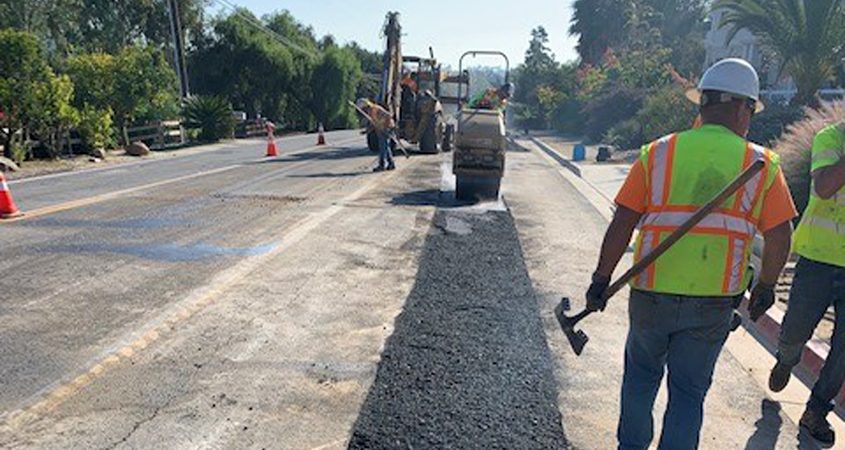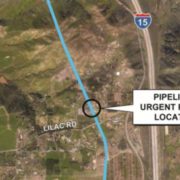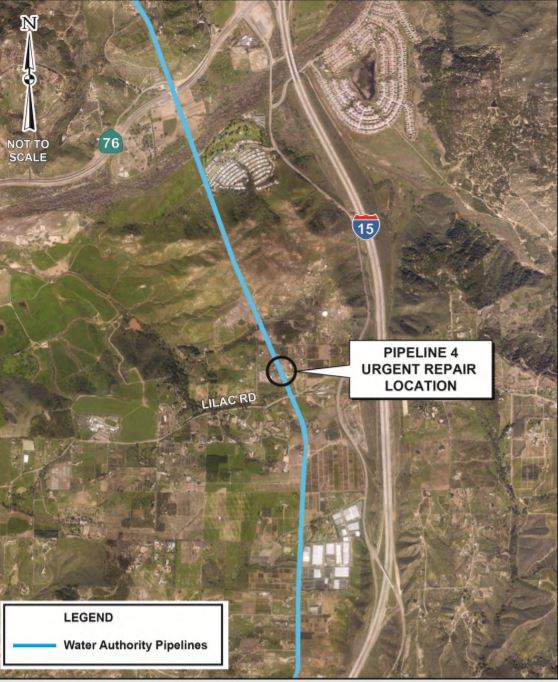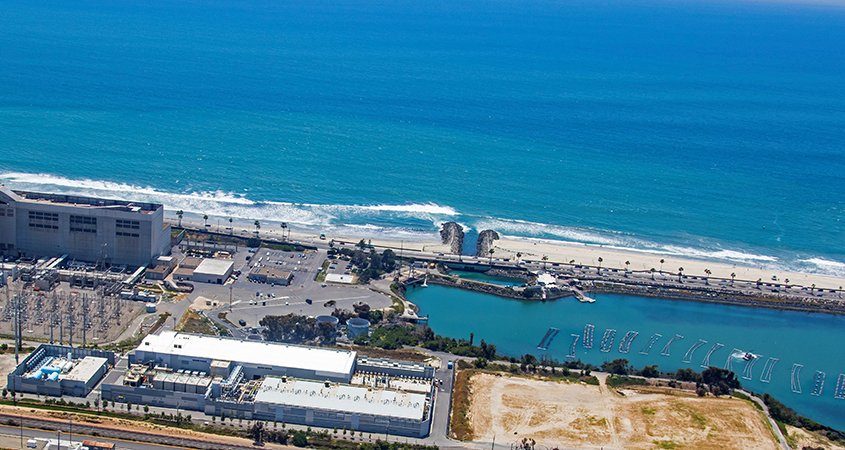Water Authority Awarded Patent for Pipeline Inspection Tool
The San Diego County Water Authority has been granted its first ever utility patent for a device that inspects interior sections of water pipelines that are inaccessible or not safe to inspect without expensive specialized gear and training.
Water Authority Operations and Maintenance Manager Martin Coghill invented the tool to save time, reduce costs and improve safety during ongoing aqueduct inspections. The Water Authority’s industry-leading Asset Management Program includes a proactive search for pipeline weaknesses that can be addressed before they become large and costly problems.
Patent for pipeline inspection system
The U.S. Patent and Trademark Office awarded Patent #US011,293,581 on April 5, 2022, for the Water Authority’s pipeline inspection system, which comprises a body, cameras, support members and light sources to capture high-resolution images of pipeline walls.
Innovation benefits water ratepayers
“This new pipeline inspection tool is a prime example of the Water Authority’s commitment to innovation that benefits ratepayers by saving money and enhancing reliability,” said Water Authority General Manager Sandra L. Kerl. “We have a long history of advancing industry-leading solutions, from state legislation to adopt low-flow toilets in the early 1990s to the nation’s largest water conservation-and-transfer program a decade later to the largest seawater desalination plant on the continent.”
The Water Authority operates and maintains a water delivery system capable of delivering more than 900 million gallons of water per day through 310 miles of large-diameter pipeline, 1,600 aqueduct-related structures, and approximately 100 metering/flow control facilities. It also includes a state-of-the-art water treatment plant, hydroelectric facilities, pump stations, flow regulatory structures, and reservoirs that store water for emergencies and dry years.
Video of “Scanny” In Use
New pipeline inspection tool part of high-tech toolkit
The Water Authority uses a combination of technologies for monitoring pipelines, including electromagnetic scanning, which detects and locates damaged areas within pipeline walls, and real-time acoustic fiber-optic monitoring, which can detect and locate distressed pipelines while they are in service. The technology invented by Coghill is just a small part of an expansive toolkit.
The Water Authority applied for the patent on June 13, 2019, and spent nearly three years completing the complex process. The patent assigns the intellectual property rights to the Water Authority, allowing it to freely use the technology and share it with other water utilities that might also benefit from its use.
The inspection tool uses commercially available lightweight adventure cameras and lights that are arranged in a unique way on a chassis that moves through pipelines that are 4 to 9 feet in diameter, said Coghill, who has worked for the agency since 2013.
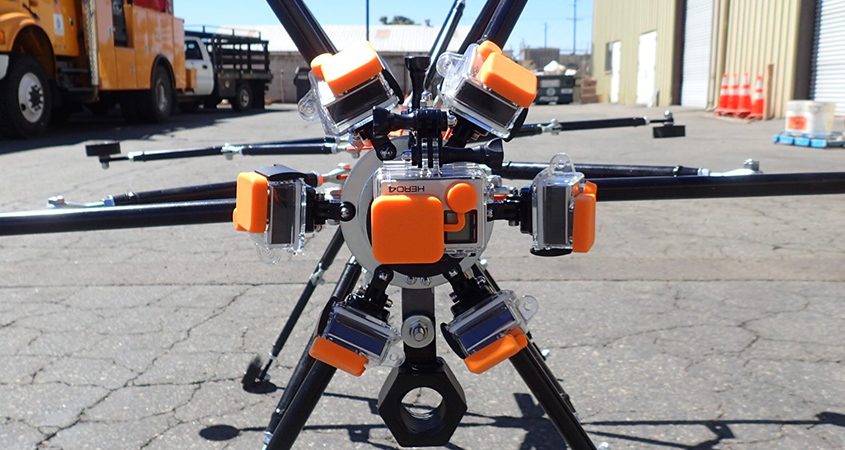
The inspection tool uses commercially available lightweight adventure cameras and lights that are arranged in a unique way on a chassis that moves through pipelines that are 4 to 9 feet in diameter. Photo: San Diego County Water Authority
High-resolution imaging
“This technology was created in-house out of necessity to improve safety while inspecting steep portions of our aqueduct,” said Coghill. “The array of multiple cameras enables high-resolution imaging, and the unique design keeps the cameras oriented in the correct position relative to the pipe.”
Coghill, who affectionately calls the tool “Scanny,” said the camera array can also be added to any existing pipeline assessment equipment and offers much higher resolution than traditional CCTV. In addition to inspecting unsafe and inaccessible portions of pipelines, the tool’s design means the Water Authority no longer needs to use specialized third-party rope support crews to assist with pipe inspections. A bonus feature of the device is the ability to stitch the video files together for an immersive 360-degree virtual reality experience. He said it’s always fun to take people into the pipe by just putting on VR goggles.
The Water Authority will continue to use its patented technology to benefit water ratepayers and the safety of employees.
The complete patent is posted on the U.S Patent and Trademark Office website: https://bit.ly/3vGEk0I.



